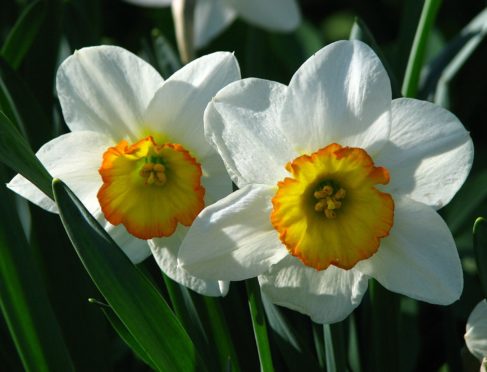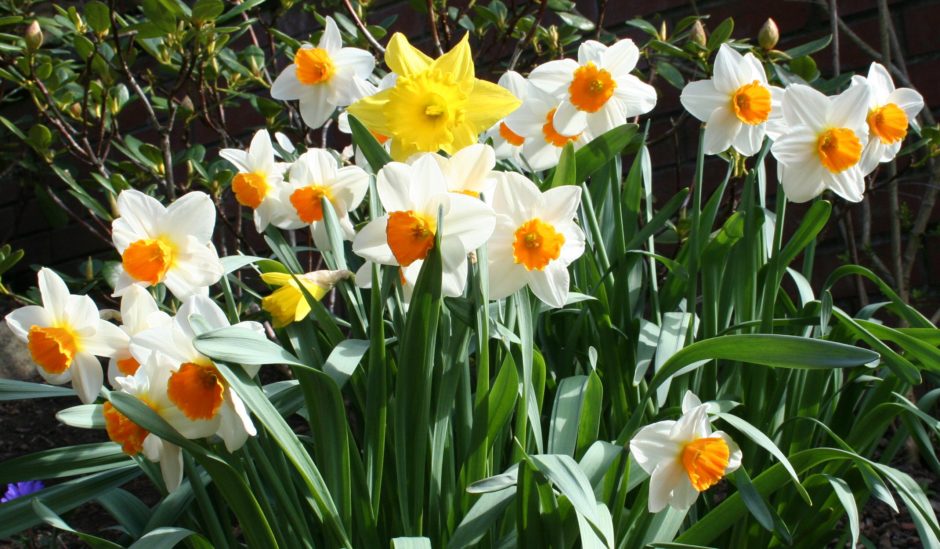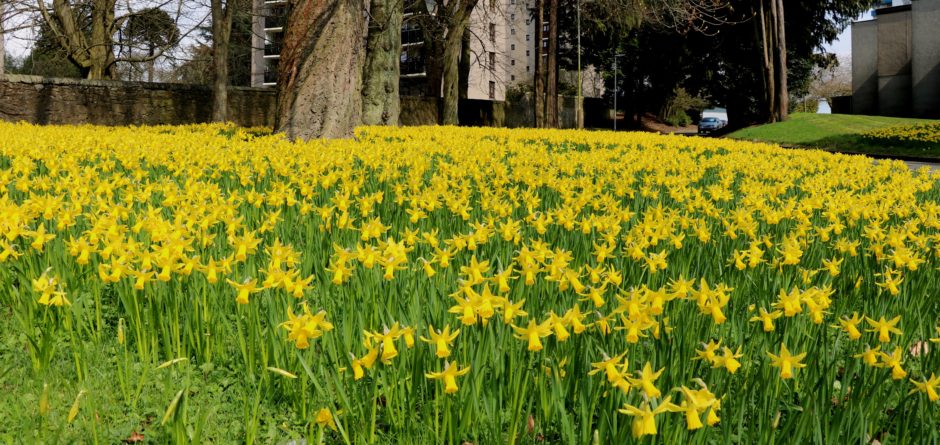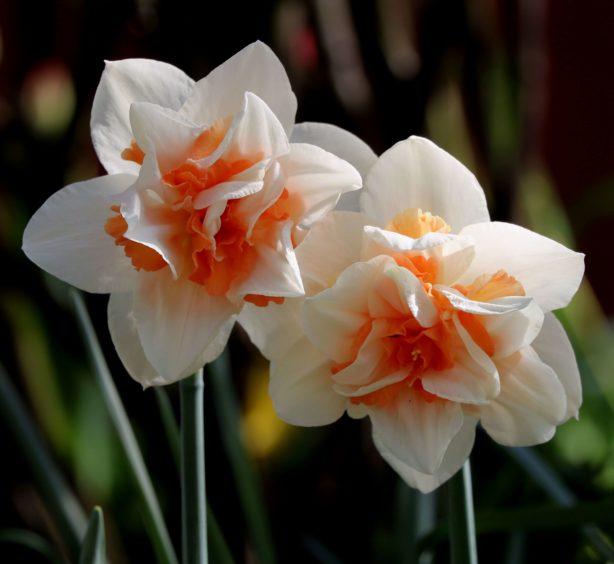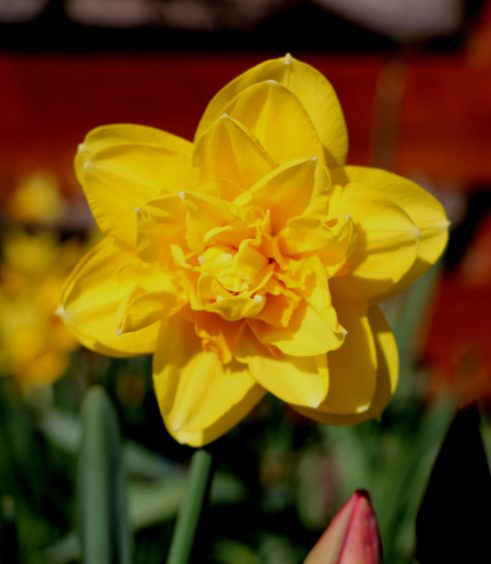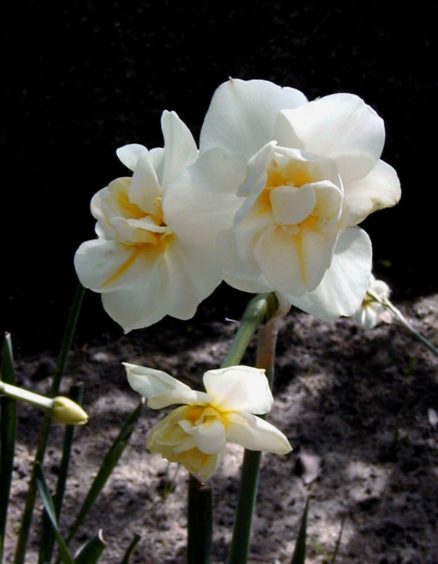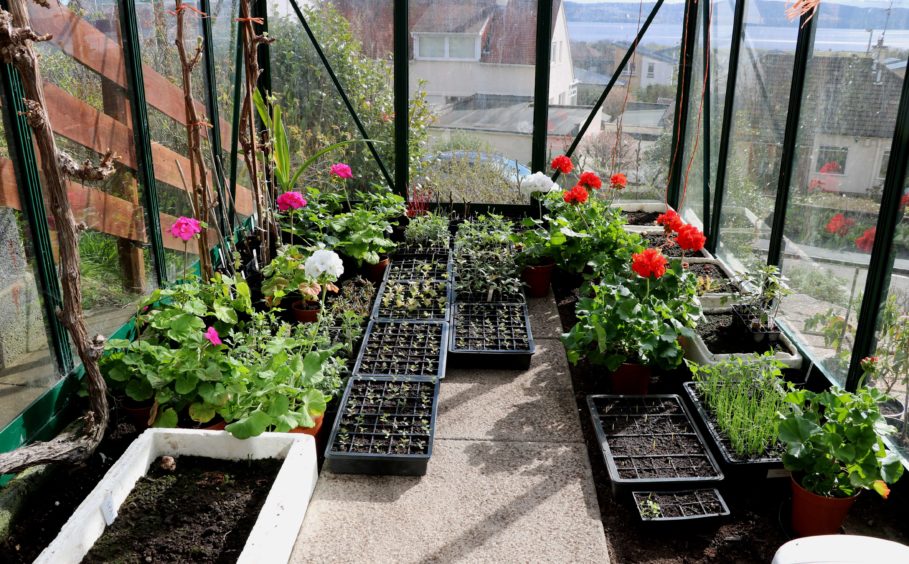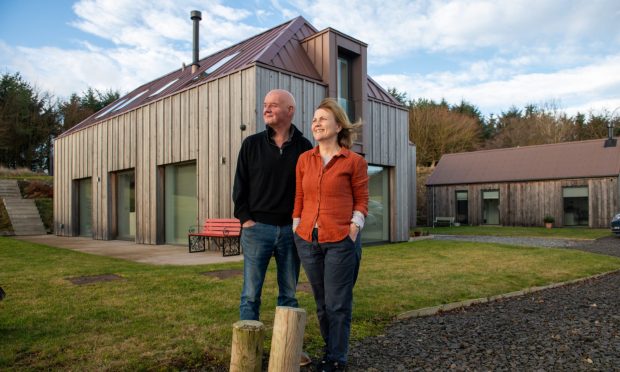April flowers are dominated by daffodils in gardens, local authorities’ parks and open spaces and as cut flower in the home.
They are very easy to grow, quite cheap to buy and very versatile as we can all find a spot in the garden that needs brightening up as we leave winter behind.
Many years ago when the Britain in Bloom contest was at its most popular, most local authorities competed with each other for top place in the contest.
Flower impact in open spaces, parks and along highway verges of massed drifts of daffodils and narcissus was crucial to impress the judges, but also to create beauty for locals in towns and villages.
Daffodils planted in massive drifts fifty years ago are still there and we reap the benefit every spring when the towns come alive with the yellow flowers.
Once planted, they will live forever, as they are fairly free from pests and diseases.
In past times when council budgets were under less pressure, allocating funds to enhance the environment was a high priority as locals were proud of the beauty of their locality.
Daffodils were planted by the thousand, and numerous organisations got involved in planting their own patch from school kids planting in school grounds and adjacent open spaces, then boy scouts, girl guides, council gardeners and workers on job creation schemes.
Organising the planting was easy once the technique was demonstrated by a few gardeners. Using a spade, a turf was cut in three sides and flipped over to allow two bulbs to be placed in the corners, then the turf was flipped back into place and firmed down with the feet.
The next sod was cut about nine inches to a foot away from the last one.
However the shape of this drift was marked out to allow grass cutting around the outside of the flowers.
After flowering it was normal to leave the foliage to die down before it was cleared off with flail mowers which collected the dead foliage and long grass.
Usually six weeks or longer was enough to let the leaves develop and bulk up the bulb for the following season.
In gardens we most often plant amongst deciduous shrub borders, or under trees; perfect for orchards and allotment flower borders.
To give the biggest impact it was normal to plant with the large flowered trumpet daffodils such as King Alfred or Golden Harvest as well as the white flowered and scented Mount Hood.
However to get the show off to an early start February Gold was often used as it is often the first to flower, usually in March in Scotland, and even after our mild dry winter it was still March before it appeared.
Daffodils and narcissus have always been very popular for hundreds of years so breeders have introduced new varieties by the thousand.
Every year there is a new one that catches your eye so just buy it and plant it.
They are great in tubs and pots for displays at door entrances and patios, then once they finish flowering they can be transplanted to another spot in the garden to flower the next year.
I love the scented varieties so I always have some Cheerfulness types as well as the smaller flowered Jonquils.
They can also be used in autumn in pots to flower indoors in early spring or even late winter.
Daffodils and narcissus however have a darker side as many species contain the alkaloid poison lycorine mostly in the bulb but also in the leaves, so take great care when handling the bulbs.
Dermatitis can also be a problem for flower pickers, packers, florists and gardeners, causing the “daffodil itch”, with dryness, fissures, scaling, and erythema in the hands.
Of all the alkaloids, only galantamine has made it to therapeutic use in man, as the drug galantamine for Alzheimer’s disease.
The daffodil crop is growing in Wales not for the flowers, but for the extraction of galantamine for medicinal use in the treatment of Alzheimer’s disease.
Wee jobs to do this week
The greenhouse is now packed out with plants growing strongly, so open the ventilators at every opportunity to harden off plants.
Tomatoes in pots will need more room to grow before planting out into borders, pots or growbags once that first flower appears.
Broad beans, onions, sweet peas and salads and geraniums can all go outside on a good day, but keep an eye on the weather forecast in case we get a late frost.
